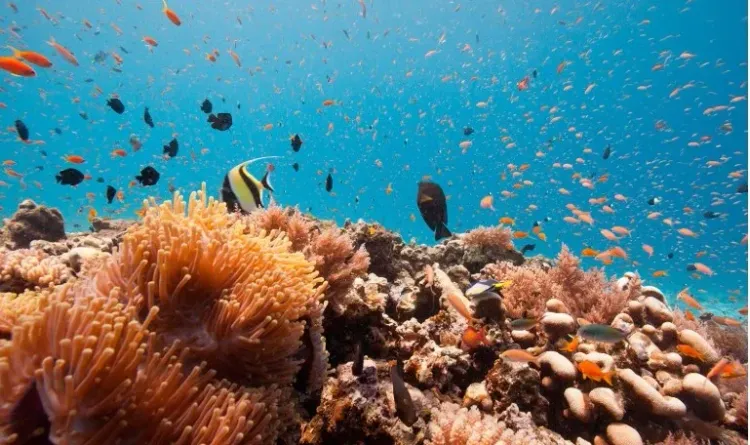How is Tanzania Enhancing Biodiversity and the Blue Economy?

Synopsis
Key Takeaways
- Tanzania has restored 90.4 hectares of mangroves to promote biodiversity.
- Local communities play a crucial role in the restoration efforts.
- The 2025 National Water Policy aims to enhance water availability and protect sources.
- Mangroves are essential for filtering pollution and protecting shorelines.
- Engagement of the private sector is vital for project financing.
Dar Es Salaam, July 24 (NationPress) In a significant effort to bolster biodiversity and promote a sustainable blue economy, Tanzania has successfully restored 90.4 hectares of mangroves across the Tanga region and Pemba Island over the last three years, an official announced on Thursday.
According to Joseph Olila, the manager of the Coastal and Marine Resilience Program at the International Union for Conservation of Nature (IUCN), this initiative is part of the Bahari Mali project, which translates to "the sea is wealth," and is actively implemented within the coastal communities of Tanga and Pemba, as reported by Xinhua news agency.
While addressing journalists in Tanga, Olila emphasized that the restoration efforts are spearheaded by local communities working hand in hand with government forestry officials, with initial financial and technical backing provided by IUCN.
He stated, "Once established, these communities gain the capacity to independently manage restoration activities."
Olila further highlighted the importance of mangroves as essential natural filters that hinder polluted water from entering the ocean, shield shorelines from erosion, and create vital habitats for marine biodiversity.
In March, Tanzania rolled out the 2025 National Water Policy, which is designed to improve water availability and enhance the safeguarding of water sources.
This updated policy, a revision of the 2002 edition, was inaugurated by President Samia Suluhu Hassan in Dar es Salaam as part of the World Water Day celebrations.
President Hassan stated that the revised national water policy aims to boost private sector involvement in financing water projects and fortify the protection of water infrastructure to improve water availability.
She stressed that safeguarding water sources is a collective responsibility, not merely that of the Ministry of Water, urging all Tanzanians to contribute.
Hassan also advocated for the establishment of a national water grid to manage water resource usage nationwide, while encouraging citizens to adopt rainwater harvesting practices for periods of scarcity.
Nathan Belete, the World Bank Country Director for Tanzania, Malawi, Zambia, and Zimbabwe, commended Tanzania for launching its 2025 National Water Policy, asserting that this new edition aims for the optimal, sustainable, and equitable management and use of water resources for the benefit of everyone in a cost-effective manner.
"It addresses challenges in water resource management, water quality in both rural and urban settings, and the provision of water supply and sanitation services, all of which are crucial for achieving socio-economic development and water security in Tanzania, aligning with both national and international objectives," Belete stated.









